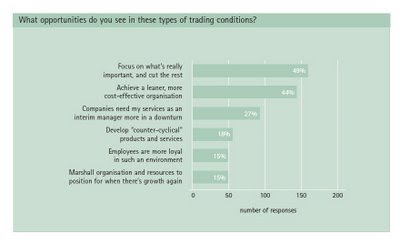 In the good old days evenings were dark, undemanding and quiet. Pastimes were slow moving and relaxing e.g. watching the sun set, playing charades, shadow puppets, card games like bridge and simple activities such as cave-painting, bead-making, etc.
In the good old days evenings were dark, undemanding and quiet. Pastimes were slow moving and relaxing e.g. watching the sun set, playing charades, shadow puppets, card games like bridge and simple activities such as cave-painting, bead-making, etc. Fast-forward to today. PCs and consumer electronics provide us with a staggering number of things to do at night, all night. Video games, TV, social networking, chatting with friends, editing pictures, writing blogs, catching up on work, etc. These things are compelling and addictive. Getting a good night's sleep has become a challenge and a discipline, something that are not easy and we are not good at.
Poor sleep, or what they call " junk sleep" (sleep compromised by constant waking), is said to affect younger people, teens and twenty-somethings, in particular and who are developing the habit of rarely sleeping well. The truth is that this is the generation brought up on gadgets, global awareness and always-on technology.
Sleep problems hit travelers, too. Jetlag, time zones, unfamiliar /uncomfortable hotel beds /rooms, dodgy drinking water, strange foods that disturb the acid balance of the stomach and other unavoidable realities of travel, can make it very hard to sleep well and rise refreshed, consistently.
Current anxiety about the future and the ongoing effects of the recession is also making sleep more challenging. People are lying awake at night with troublesome thoughts about their 401(k)s, layoffs and the other stressful financial realities we all face.
Unfortunately, a lack of sleep or even a lack of uninterrupted quality sleep, can cause serious problems with your health. Bad sleeping practice is not only inconvenient but it harms overall physical and mental performance, and impacts your memory. What's interesting about this is that sufferers are usually blind to the symptoms, and they think they're doing fine. Bad sleep also triggers an insulin reaction similar to eating a lot of sugar, contributing to weight gain, diabetes and obesity. In conjunction with a sedentary lifestyle, this is a very serious situation and can result in life-threatening obesity.
Arguably, gadgets are contributing to this problem but gadgets can help solve it, too. Electronic sleep helpers have been around for quite a while but a new generation of products is claiming to be better than anything that's come before. In honour of the month of May, which has been designated Better Sleep Month (who comes up with these things?), here are some of the newest and most interesting electronic sleep helpers.
New 'Help U Sleep' Gadgets
- Cell phones are actually very nice sleep devices. If calming music helps you sleep, you should know that some phones have the ability to turn themselves off after a while, so you can use your phone to listen to music as you doze off. For example, on the iPhone, you can use the normal timer to " sleep iPhone" instead of setting it to ring an alarm.
- Taking that a step further, there's a new iPhone app called A Good Night's Sleep. You can set a series of sounds, including peaceful music or "nature sounds" like rain or ocean waves, followed by silence. One of the settings is called "Night hypnosis," where a voice hypnotizes you into sleeping. You can set the duration and sound volume of each sound separately. A Good Night's Sleep also has a wake-up feature, where you set wake-up sounds that play in a series.
- Sleeptracker wristwatches monitor and track your sleep patterns. You can upload the data via a USB cable to analyze the quality and quantity of your own sleep. The benefit here is that you can find out if you're getting restful sleep or if you're constantly waking in the night. The watches also come with alarm clocks built in.
- Another newish offering is Pzizz, an application that helps you create personalized sleeping soundtracks on your Mac or PC and then import them to your mobile device so you can listen to them in bed. The makers of Pzizz claim that sleep improves the more you use their product. Pzizz helps you sleep at night and also get a quick-but-satisfying power nap during the day.
- Most of the new high-tech sleep aids involve listening to music or other sounds, but wearing headphones and earbuds probably doesn't help you fall asleep. Regular speakers might work fine. You can also buy pillows with speakers built in, such as the Audio Pillow.
- Makers of the Verilux TwiLight Ultra Blue Light Therapy System claim that their product uses light to convince your body to stop producing a hormone called melatonin. The idea is to regulate your body's circadian rhythms so that when it's time for you to sleep, you do so easily.
Of course, the best advice for getting sleep is to be disciplined and establish a good bedtime routine. Optimise your diet, get some exercise and take steps to relieve stress. If that's not enough, these gadgets might be able to help you enjoy all the sleep benefits that people enjoyed 100 years ago.























